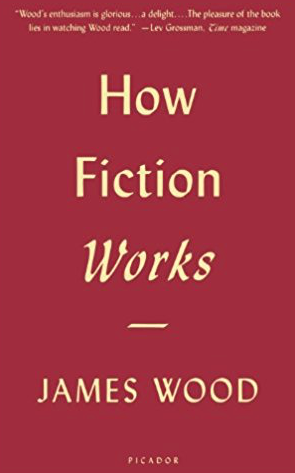 Cathleen got a library card, and I got one, too, this so we can each besmirch our own reputations.
Cathleen got a library card, and I got one, too, this so we can each besmirch our own reputations.
To celebrate my first library card in years, I checked out a book called “How Fiction Works” by James Wood.
Accordingly, I now know how fiction works:
Fiction works by befuddling literary critics.
Given the progress of progressive education through the bowels of our culture, fiction promises to work ever-better every day.
You think I’m joking, but I’m not. In epiphany #98, on page 181, the poet Philip Larkin uses an adverb so vague and so clumsy – and so obviously false to purported fact – that not a single writing student can guess it. If that ain’t a muse-ridden mystery, nothing is.
Wood is the kind of booky gnome who thinks fiction works because booky gnomes are afraid of reality, and so, convince themselves that it’s much more important to waste vast tracts of time gravely studying stupidly verbosely unreadably ‘fictionalized’ regurgitations of the unseemly habits of the ‘author’ and his ‘friends.’ The stylized diaries of the mentally ill get the highest praise of all.
I’d go on, but why? I’ve thought forever that libraries are just the branch offices of the publishing industry’s rent-seeking sinecures, and “How Fiction Works” argues that James Wood could probably do better at almost any other job, were Big Mother’s magic teats to dry up. It’s a fun read, despite everything. It’s a shame the man has nothing to write about.
Meanwhile, somewhere in Peoria, Arizona, a taxpayer is going hungry so James Wood can usurp his wages, devouring the physical wealth that he might rededicate himself to destroying the West’s intellectual capital.
Here’s good news, though: “How Fiction Works” can be tough-sledding, and it assumes a deep knowledge of Western lit going back to the Greeks, so relatively few people now alive can read it to any profit. Of those few, fewer still actually will read it – even if they purchase it. And of the few who do, certainly all of them will be like me: Wise to James Wood and his ilk. So as harmful as this book could be, it will have no impact at all in the long run.
But there is a comedy here, even so: Wood actually, accidentally does detail how fiction works, in a footnote on page 171: “[F]iction pushes certain pleasure buttons.” Reward is the motivation behind any recurring choice, so that’s not such a leap. But when your entire thesis is so obvious it can be defended without objections in five words, you really have to pile up the ‘analysis’ to get the librarians to cut a check.
The last library book I laid hands on, I stole, thus to excise at least that one disease vector from the jungles of the mind. “How Fiction Works” is harmless, by comparison: A charming book about charmless books. As we will have signalled by unanimous indifference: We care a lot.















